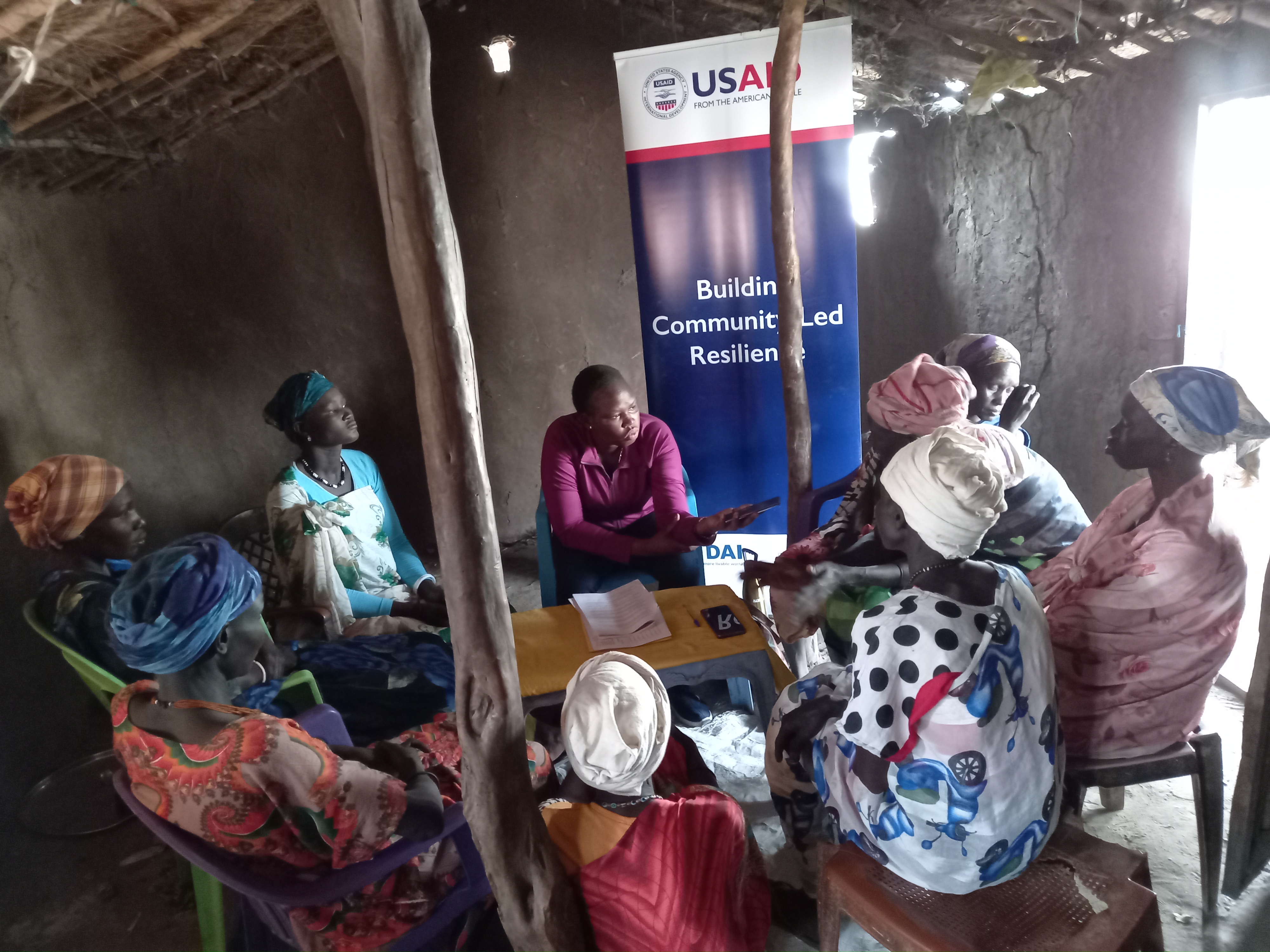Building Community-Led Resilience in South Sudan: Lessons from Policy LINK
Explore how Policy LINK worked to build South Sudan's capacity to plan for a more resilient future.
Image

In South Sudan, Policy LINK worked to build community capacity to prioritize local needs, plan for a more resilient future, and inform government and donor programming.
To help communities develop and implement resilience-focused local action plans, Policy LINK designed a five-step participatory planning process. Through this process, we systematically engaged the four corners of the community—traditional authorities, civil society, the private sector, and local government—as well as historically marginalized groups such as women, persons with disabilities, and youth.
Participatory Planning Process
- Engage stakeholders: Introduce the process to the community and build a foundation of trust for cooperation and coordination.
- Gather evidence: Use resilience mapping to help communities understand the institutions, structures, processes, and capacities available for community-led resilience. Explore how communities and institutions organize themselves, recover from and mitigate the impacts of shocks, and protect development gains.
- Facilitate sense-making workshops: Share the resilience mapping findings with communities at payam-level workshops and promote learning around the evidence. Guide workshop participants in identifying resilience priorities, needs, and actions and selecting delegates to represent them at subsequent planning workshops.
- Facilitate local action planning workshops: Help community delegates translate resilience priorities into payam and county local action plans that instill a sense of agency in communities and facilitate improved collaboration with the government and USAID implementing partners.
- Support joint work planning: Bring together community delegates, local government officials, and USAID implementing partners to develop joint work plans that facilitate mutual accountability and effective collaboration on resilience actions related to conflict mitigation, agricultural productivity, human and animal health, and water, sanitation, and hygiene among other areas.
Policy LINK launched this planning process in communities around South Sudan. They gathered and shared evidence and engaged communities in translating the evidence into resilience priorities.
This brief highlights key aspects of the participatory planning process that produced these outcomes. It offers practical recommendations, applicable in a range of contexts, for putting communities at the center of resilience programming.




